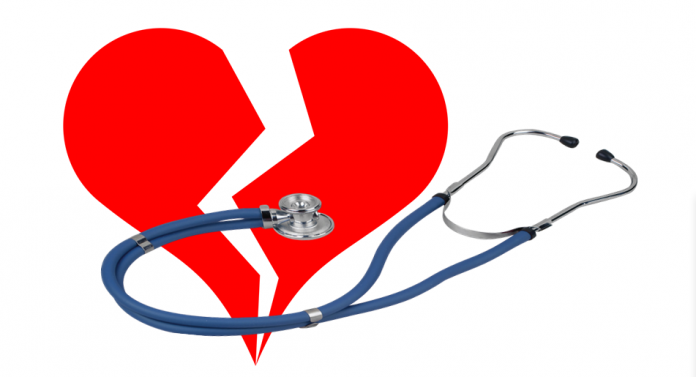A new study suggests that the coronavirus pandemic has contributed to broken heart syndrome or stress cardiomyopathy, a heart dysfunction brought on by some type of emotional or physiological stress.
The Journal of the American Medical Association on Thursday found that stress cardiomyopathy, also known as Takotsubo Syndrome, accelerated by 7.8 percent during the COVID-19 pandemic’s initial apex, compared with pre-pandemic cases that ranged from 1.5 to 1.8 percent only.
The study, helmed by researchers at the Cleveland Clinic in two Ohio hospitals, examined some 1,914 patients from five distinct two-month periods who were experiencing acute coronary syndrome. Of the patients, 250 had been hospitalized in March and April.
The researchers compared those patients to others who had exhibited the same problems across four timelines during the course of the last two years.
The study’s findings suggest that social, psychological, and economic stress related to COVID-19 are to be blamed for the increase in cases.

Reaction to stress can cause a release of stress hormones
Takotsubo Syndrome was first identified by Japanese scientists and researchers in 1990. While the root cause of the disease is not yet fully understood, experts suggest that a person’s reaction to unexpected stressful occurrences trigger a release of stress hormones that temporarily reduce the heart’s ability to pump.
“The association between stress cardiomyopathy and increasing levels of stress and anxiety has long been established,” the report’s authors stated in the report. “The psychological, social, and economic distress accompanying the pandemic, rather than direct viral involvement and sequelae of the infection, are more likely factors associated with the increase in stress cardiomyopathy cases. This was further supported by negative COVID-19 testing results in all patients diagnosed with stress cardiomyopathy in the study group.”
The results, however, “should be interpreted with caution when applied to other states or countries,” according to the study. “Further research must examine the association of COVID-19 with the incidence of stress cardiomyopathy and study any temporal or regional differences.”
Patients with broken heart syndrome usually experience chest pain, shortness of breath, irregular heartbeat, low blood pressure, and sweating.
Make sure to be evaluated by a doctor if you experience these symptoms to know whether or not this warrants a COVID-19 test or a cardiovascular evaluation.
—————————————-










